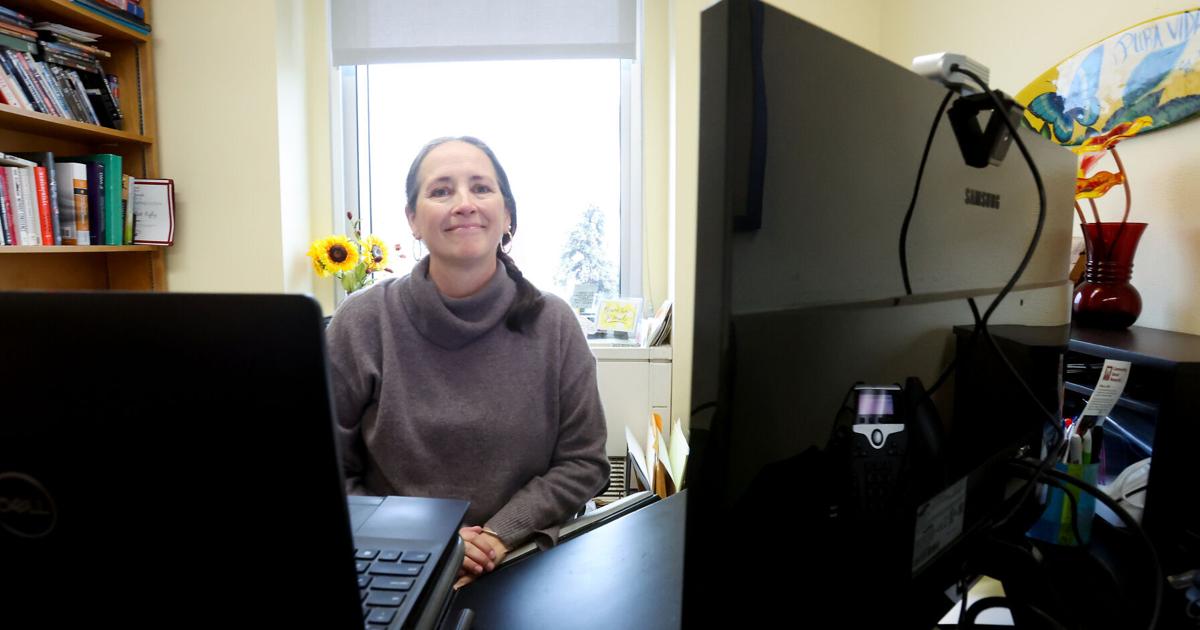Patricia Coffey is a forensic psychologist who loves learning about what makes you tick
The long-experienced forensic psychologist is a faculty member in the UW-Madison Department of Psychology. Patricia Coffey, a forensic psychologist at the University of Wisconsin, has been studying the human mind since she was a high school. She is a faculty member in the Department of Psychology and teaches students how to conduct court-ordered psychological evaluations or forensic assessments for those charged with crimes. She also teaches an introductory psychology course at Oakhill Correctional Institution near Oregon, where incarcerated people can obtain college credit. Coffey is particularly interested in psychopathy, as a study found that psychopaths have reduced connections in the part of the brain responsible for empathy, guilt, fear and anxiety. She has worked with both victims and perpetrators of crimes and believes that behind every criminal offense is a story that led them to commit the crime. She shares her thoughts on how to break the stigma around being a survivor of domestic violence or sexual assault.

Published : a month ago by Emilie Heidemann, emilie heidemann in Health
Patricia Coffey has loved learning about what makes people tick since she was a high school student.
The forensic psychologist is a faculty member in the UW-Madison Department of Psychology. She not only teaches UW-Madison students pursuing their graduate degrees how to conduct court-ordered psychological evaluations or forensic assessments for those who have been charged with crimes — at times quite violent crimes; she also teaches an introductory psychology course at Oakhill Correctional Institution near Oregon, for which incarcerated people can obtain college credit.
Coffey also teaches UW-Madison students a course about the criminal mind and an introductory psychology course, as well as a community- and project-based class about the issues and science behind prisoner reentry. Coffey said the students learn from people who have repeatedly been incarcerated and incorporate what they learn into community projects.
“I’m really interested in psychopathy,” said Coffey, adding that she finds the neurobiological differences between a psychopathic brain and a typical brain particularly intriguing.
According to a study published by the UW-Madison School of Medicine and Public Health in 2017, psychopaths have reduced connections in the part of the brain that is responsible for empathy, guilt, fear and anxiety.
Coffey is a 1980 graduate of D.C. Everest Senior High School in Weston. She credits a professor during her first two years of college, at UW-Marathon County, now UW-Stevens Point at Wausau, for inspiring her to pursue her fascination with the human mind. She graduated from UW-Madison in the mid-1980s with degrees in both psychology and Latin American studies.
Coffey didn’t stop there. She earned a doctorate in clinical psychology from the University of Vermont. She traveled to Guatemala and Belize to take Spanish classes, and she worked with women who had dealt with sexual assault and domestic violence.
Coffey returned to Madison for an internship at Mendota Mental Health Institute, which she said gave her a range of experiences working with adolescents and adults with mental illnesses and some involvement with the criminal justice system.
Coffey operated her own private practice until 2016, working with victims of sexual assault and domestic violence, people with trauma and post-traumatic stress disorder, and prisoners. Coffey has also conducted various court-ordered psychological assessments, she said, and has a lot of training with anxiety disorders.
Coffey said it’s been interesting to have worked with both victims and perpetrators of crimes. Those experiences have taught her that behind every criminal offense is a set of circumstances, a story, that led them to commit the crime. She said she’s also grateful that she’s been able to help victims of crimes overcome and not be defined by their trauma.
“You’re helping people realize it’s not their fault,” Coffey said. “You aren’t crazy. That trauma doesn’t have to ruin your life.”
How do you conduct a forensic assessment?
You get people’s stories. You can’t understand how someone ended up with the life they had if you don’t understand their story. If you don’t understand that, you can’t know how to change the trajectory they are on.
How can we better prevent crimes from occurring?
Hope. You have to inspire hope for the future to care. Hope comes from our potential, our environment and growing up. In a general sense, it’s recognizing that once people get into the system, there are many things we can do. I’ve found that education is more effective than any treatment I’ve been involved with.
How can we break the stigma around being a survivor of domestic violence or sexual assault?
It’s gotten a lot better. I think we have made incredible progress if I think back to the 1970s, 1980s. We first go to “Why don’t you leave?” or “I would never let someone do that to me” type of language. We need to flip that. “Why don’t they leave?” We need to encourage people to say “It’s not your fault” or “You didn’t deserve that.” The reason we don’t — we all don’t want to feel like those things don’t happen to us. If we other the victim in some way, then we feel psychologically safer. That narrative has always been how to be safe as a victim. That narrative has been shifting in the opposite direction over the last decade.
What lessons have you’ve learned over the course of your career?
Everyone is more than the worst thing they have ever done. That’s part of why I am so dedicated to teaching. We simply don’t think about the things we can’t see. We can’t see what’s going on in prison. We need to pay attention to what we are doing in (the criminal justice) system. We can do better — for victims and survivors and even for the people who have perpetrated the harm.
